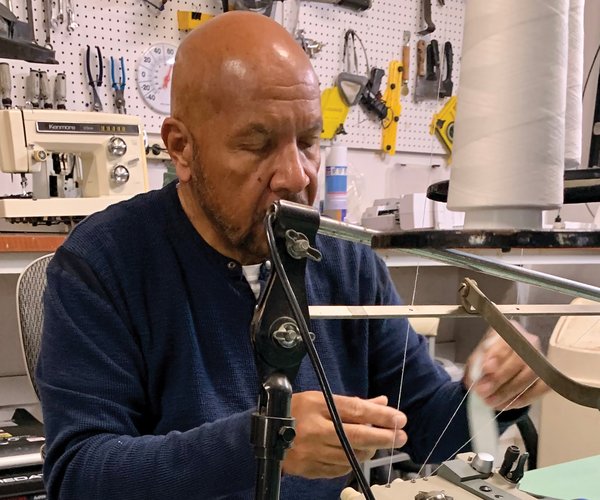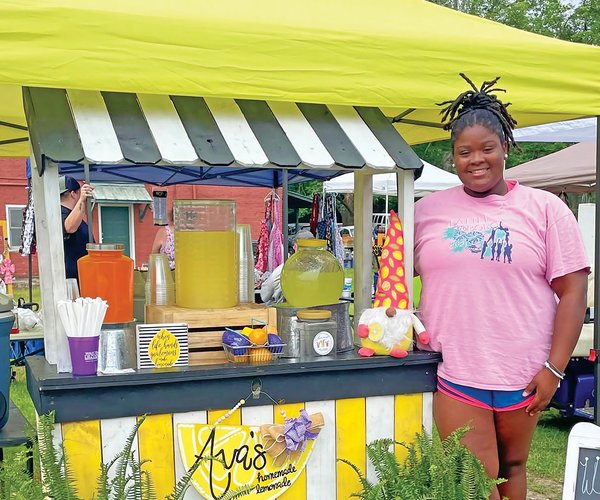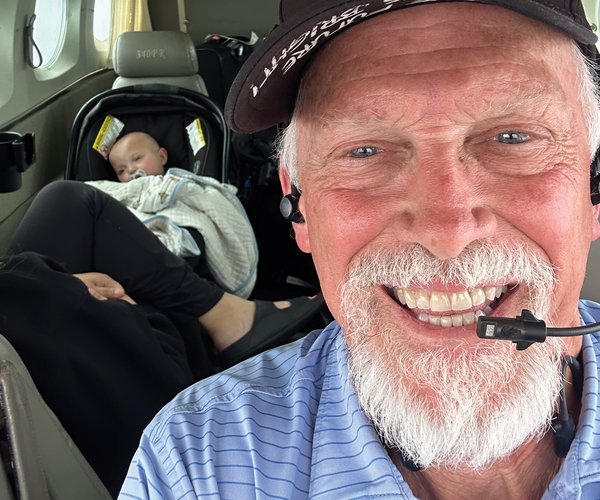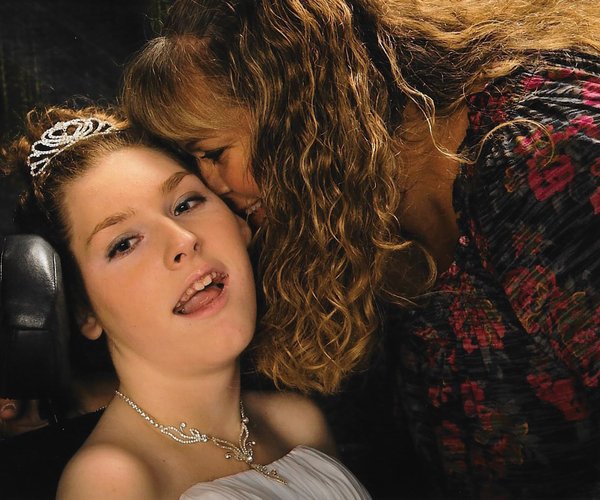A “widow-maker” heart attack is among the most serious types of cardiac arrest. It is caused by a complete blockage of the left anterior descending, or LAD, coronary artery, a major pipeline for supplying blood to the heart — and as its name suggests, it is all too often deadly, because a significant amount of the heart’s tissue is affected by a blockage in this area.
But three years ago, thanks to a neighbor’s quick response and an abundance of God’s grace, Bulloch County man Nelson Lightsey beat the odds and survived to share his story.
Nelson, 73, remembers February 28, 2022, as an ordinary Monday — until it wasn’t. He had completed some installation and climbed a few ladders as part of his cabinetry business, a day that felt no different than any other day. Just a month before, he’d had his routine six-month physical, and everything came out fine.
But later that afternoon, as he and his wife, Diane, were talking with neighbors Yvonne and Dave Parker, Nelson suddenly collapsed. Much of what occurred in the moments, days and weeks that followed is a blur for Nelson, though for Diane, the memories remain visceral.
Dave immediately began CPR and continued for 12 minutes until paramedics could take over.
Be the beat
No matter where you are, if you witness a teen or an adult suddenly collapse, you need to act fast. Most people who experience cardiac arrest outside of a hospital die because they don't receive immediate CPR from someone on the scene.
You can save a life in two easy steps:
1. Call 911 right away, or have someone else call, and keep your phone on speaker mode.
2. Push down hard and fast in the center of the person’s chest at a rate of 100–120 compressions per minute. Thinking of a song such as “Stayin’ Alive” by the Bee Gees, “Crazy in Love” by Beyoncé featuring Jay-Z, “Hips Don’t Lie” by Shakira” or “Walk the Line” by Johnny Cash can help you keep pace. Find the American Heart Association’s complete “Don’t Drop the Beat” playlist on Spotify.
“After EMS arrived and continued with resuscitation in the ambulance, Yvonne stayed with them while Dave and I made phone calls to the children as we drove to the ER,” Diane said.
The couple’s daughter, Shera Waters, and their son, Jameson Lightsey, were both in shock and disbelief. Amidst the fear and uncertainty of what lie ahead, Shera kept a journal to her father, which she titled “Adventures of Dad.” One early entry reads, “Once you were in the ambulance, they used the LUCAS device to continue compressions, and we were told they did have to shock you twice to get your heart back into a rhythm.”
‘In Jesus’ name’
Upon arrival at East Georgia Regional Medical Center in Statesboro, Nelson was stabilized before undergoing a CT scan. After losing consciousness and falling on the concrete outside his neighbors’ home, doctors needed to rule out any head trauma.
Next came a cardiac catheterization, which involves inserting a thin tube into a blood vessel and guiding it to the heart in order to diagnose or treat a variety of heart problems.
“It was determined that he had three blockages; heart bypass was the only solution,” Diane said. “Memorial Health in Savannah was where we needed to go.
“On Tuesday morning, a LifeFlight was scheduled to transport Nelson. On departure from the helipad with him, the only thoughts that would come to my mind were ‘In Jesus’ name.’ So over and over, I repeated it. Then (I felt) a comforting grasp of my shoulders, and one of my best friends was praying fervently in my ear for his best friend and me. That was such a blessing.”

Though Diane was overcome with worry, she says she also experienced “a peace that only God can provide.”
In her journal, Shera wrote that Diane was allowed to spend that night with her husband in Savannah, despite COVID protocols that were still in place at the hospital. The following day, Nelson’s endotracheal tube was removed, and he was able to eat some ice chips and send a thumbs up to his kids in a photo texted from Diane.
One day later, Nelson underwent triple bypass surgery.
Code Blue 5632
Two days post-op, Shera wrote, “You were tired most of the day. So, you didn’t feel like you could make it to the window to see all of us down on the front lawn,” listing the names of a host of loved ones who were there outside the hospital to support Nelson. “You FaceTimed with all of us, though, which was good to hear your voice!”
The group dispersed later that evening to try to get some rest, but Diane, Shera and Jameson soon returned after receiving a call that doctors suspected Nelson had developed a blood clot that had migrated to his lungs — a pulmonary embolism.
“The nurse told Mom they were taking you to CT to confirm, and that’s all we knew at the moment,” Shera wrote. “We stopped at the children’s hospital ER (on the way back) to use the restroom. … While in the building, we heard, ‘Code blue 5632, code blue 5632.’ I did not know, but Mom screamed, ‘That’s his room!’”
While undergoing the CT scan, Nelson had coded and was experiencing cardiac arrest. Despite its potential risks, doctors made the quick decision to dispense a clot-busting enzyme called tissue plasminogen activator, or tPA, to dissolve the blood clot.
“They said it was a life-or-death situation and this was your best chance to survive,” Shera wrote. “Once they got you back in your room, you coded again. This is the code that we heard over the intercom.”
The tPA did its job; however, the embolism had caused blood to back up into the right side of Nelson’s heart, causing it to distend and balloon. But doctors had a plan for that, too — or, more accurately, as the entire family emphasizes, God had a plan for that.
“The critical care doctor, surgeon and the cardiologist determined that the Impella device should be inserted to relieve the pressure and allow his heart to return to normal size,” Diane said. “After 48 hours with the device in his heart, conditions settled back down to normal and it was removed. Nelson’s condition improved daily, and he was discharged after 13 days.”
Right place, right people, right God
Through it all, the Lightseys point to divine proof that Nelson was not only in the right place at the right time, but with the right people — and the right God.
“After the initial cardiac arrest, five more 'code blues,' 11 broken ribs from CPR, triple bypass surgery, a massive blood clot and a last-ditch medical procedure, the pulmonologist said, ‘Wow, it’s a night I’ll never forget! I’ve never seen any case so severe,’” Nelson said. “My local doctor said that I had a less than 8% chance of survival of the initial cardiac arrest; probably less than 1% chance, in viewing the whole event.”

Jameson later told his dad that the heart surgeon had warned that the first week following bypass surgery would be the hardest part of recovery, but Nelson had been sedated during that time, so when he woke up, he was relatively pain free.
“I did not take any pain medicine after leaving Memorial. My pain was just when I would cough, and that was only for a second,” he said. “The first time I had to sneeze, I was really afraid it was going to hurt, but it didn’t! I texted Diane and told her, ‘IT DIDN’T HURT!’
“I believe God wanted me to be clear-headed (because) He had something to tell me as I read the Psalms every night — and that is to tell my story and to encourage others to tell their story of what God is doing in their lives.”
Still, after 10 days of sedation, Nelson was unable to get out of bed or stand on his own, so he was transferred to Encompass Rehab in Savannah for two weeks of therapy.
“While in rehab, God had me right where He wanted me! No distractions, so I could listen to Him,” Nelson said. “All the medical people kept telling me I was a walking miracle; I shouldn’t be here. They kept saying, ‘God has something for you to do.’”
Those medical professionals included the surgeon who had inserted Nelson’s Impella device. As it turns out, Memorial Health had used the device in just three different patients — and Nelson’s was the first one his cardiologist had ever done.
“On my first visit to her office for a check-up, (she) looked at my chart for new patients and saw my name and just burst through the door and immediately hugged me,” he said. “She said she doesn’t normally greet new patients that way, but she knew why I was there, she didn’t have to look at my chart. Apparently, I make a big impression. Only God!”
Before his release from rehab on March 25, 2022, nearly one month after surviving a widow-maker — the deadliest of all types of heart attacks — Nelson was given a routine psychological evaluation, during which he was asked if he had any depressing thoughts.
“My answer to her was, ‘Are you kidding? After what God has done for me, there is no way I can be depressed!’” he said. “Every morning, I give thanks to God for another day He has set before me, and every evening I thank Him for the past day, and ask Him to watch over me and my family.
“There were no coincidences, no luck. God showed up and showed out,” he continued. “Yes, I am a walking miracle, but aren’t we all?”





